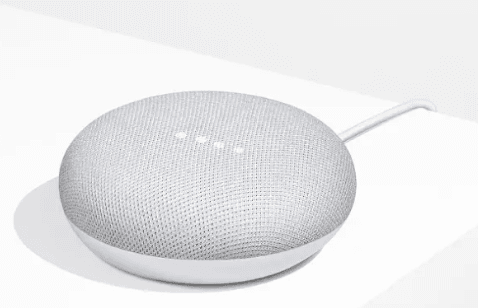Google should give away the Home Mini speaker for free, according to Morgan Stanley. The research firm believes that the search engine giant needs to hurry up to make a mark in the space largely dominated by Amazon. And to do so, Google needs to take some dramatic measures such as giving away the Home Mini speaker for free in the U.S., or even globally.
Home Mini speaker for free – why?
In a note to clients on Thursday, Morgan Stanley analyst Brian Nowak said that just like Google did with the Android by giving the operating systems to the OEMs and paying Apple to power the Safari search, Home Mini should be gifted to “every US (arguably global) household.”
“We argue Alphabet needs more devices/smart speakers in people’s homes. The growth of voice shopping combined with Amazon’s expected install base advantage could threaten long term growth in Alphabet’s high-monetizing retail search category,” the analyst said.
Further, Nowak says by his estimate, Amazon would grab 62% of the U.S. smart speaker market by the end of 2018 compared to the 33% by Alphabet. The analyst estimates that over 70% of the households in the U.S. will have a smart speaker with voice command capabilities by 2022.
According to an analysis by Voicebot.ai, the growing voice search adoption is a “gateway in voice shopping.” As per the analysis, 20% of the consumers in the U.S. have used their voice to buy items that cost less than $100, such as everyday household items along with games, apparel and consumer electronics.
The Morgan Stanley analyst believes that the trend for voice shopping would only grow as more and more people get used to talking to their speakers and leaving it up to the machine to place the order. Amazon’s recent foray into voice controlled TVs could “accelerate voice commerce,” believes Nowak. Further, the analyst notes that only a small percentage of people using the voice assistant uses them for shopping.
“With this backdrop, we argue Google needs more devices/smart speakers in people’s homes,” Nowak said.
Nowak believes that if Google speakers fall short of capturing this growing trend and finding a place in the household, it could “threaten the long term growth” of Google’s retail search advertising business, which accounts for 20% of Google’s U.S. ad revenue.
Nowak does agree that the mere presence of smart speakers do not guarantee that people would start shopping with them. Many find it easier to shop on their phones, or they want the voice-search experience to be more immersive. Also, Google might already be too late, considering the strong Prime penetration in the U.S., the analyst warned.
“Those households could be less likely to adopt using a Google Home…even if it were free,” the analyst said.
Google to benefit in long-term
Nowak said that giving away the Home Mini for free wouldn’t cost much to the search giant. Giving away free Home Mini speakers would cost the search giant only $3.3 billion. This, according to Nowak is a “small price,” given the massive opportunity lying ahead, notes a CNBC report.
Nowak also fancies the idea of a dual giveaway i.e., clubbing the Home Mini with a free YouTube Premium trial. This, according to the analyst, could increase the adoption of YouTube’s new subscription music service.
The analysts worked some numbers to conclude that if 15% of the free trial households start paying for the YouTube Premium, it would generate $1.8 billion of incremental revenue for the company. This would be enough to payback for the total device cost in four years, and also enhance the value of YouTube. Also, more Google smart speakers would mean a better opportunity for Google’s digital valet category such as Duplex.
Nowak has assigned an Overweight rating on Alphabet stock, and raised the price target from $1,200 to $1,250.
Google Home “glitch” gets a fix
In a separate development, Google Home devices reported a technical glitch earlier this week, restricting the interaction with the device. Google, however, quickly responded to the problem and came up with a fix. On its official Twitter account, the search giant said that users facing the issue can reboot their speakers or Chromecast devices, or wait for a few hours until the problem is fixed automatically.
In an email sent to all owners of Google Home, the company said that the problem was in one of the backend systems and they “spent the day working hard to get everyone back up and running.”





